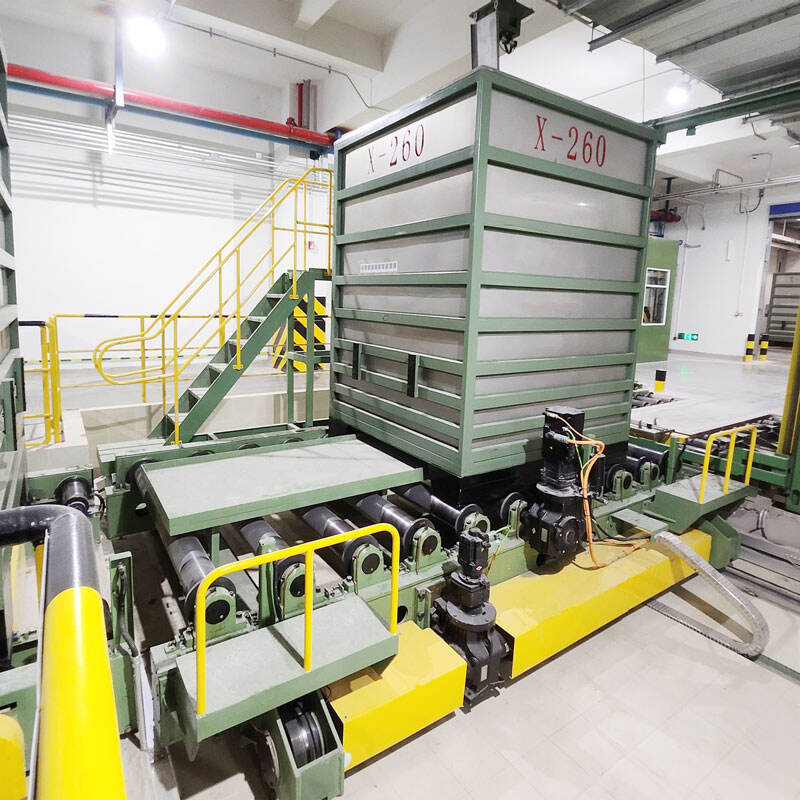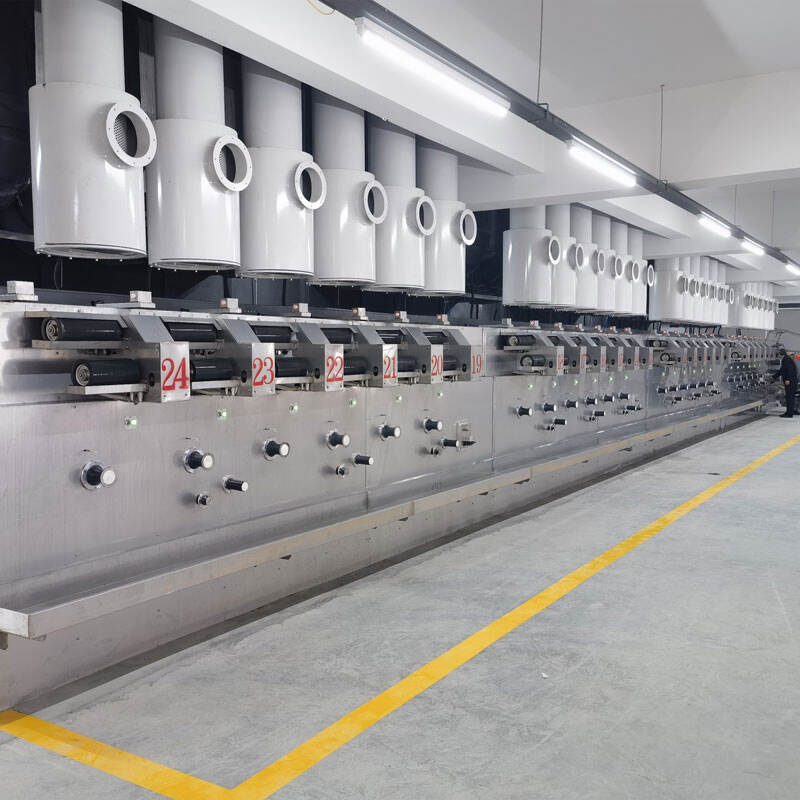In the modern rapidly evolving industries, the need for high quality fibre products is increasingly important in industries like textiles, composites, medical non woven materials, and manufacturing. To compete and respond to the demand, having a fibre making machine is now essential. Softgem Technology Co. Ltd is a leader in the provision of advanced industrial technology solutions. Softgem has acknowledged the importance of the fibre making machine, and they've designed a variety of optimized models that fit the needs of different industries. The fibre making machine is designed to solve major industrial challenges in modern production. Let’s take a look at the importance of the fibre making machines in modern industries.

Population growth and new applications are leading to more requests for fibred products than ever before. For instance, the nonwoven industry needs huge quantities of fibers for geotextiles, hygiene products, and face masks. Meanwhile the textile industry requires an entirely different range of fibers for clothing and home textiles. No longer are the manual production and low output production lines suitable to capture the scaled demand. For this purpose, fibre making machines are the optimal solution. Advanced fibre making machines, like the ones manufactured by Shenzhen softgem, commercialize the concept of large scale production by feeding and continuous operational production systems. These setups ensure industries have a reliable supply of fibers, on demand meeting market requests. Producing thousands of kilograms of fiber in a day, a single machine replaces 10-20 manual daily production units.
Today, businesses recognize product quality as one of the most important competitive quality factors. A company’s reputation and its bottom line can suffer greatly due to customer dissatisfaction arising from inconsistent product quality. Historically, processes for fibre crafting have been based on hand work. This led to the inconsistent and variable fibres with regard to thickness, strength, and texture. This is no longer the case, as modern fibre making machines utilize precise mechanized controls. These machines adaptive real-time temperature, pressure, and stretch control to deliver consistent quality fibres. For example, the production of medical-grade fibres like surgical masks with precise tolerable diameter for optimum filtration is an example of quality control. Fibreis manufactured by Shenzhen Softgem’s fibre making machines, are monitored for quality and automatically reject imperfect specimens. Consistent performance like this allows businesses to establish and maintain a reliable brand.

The modern industry requires more types of specialized fibers to meet the needs of various applications such as flame retardant fibers for safety equipment, anti-microbial fibers for healthcare, and high-strength fibers for industrial filters. While traditional equipment can only produce a narrow range of fiber types, more recent and specialized equipment can produce a wider range of fibers by altering machine components and settings. For instance, businesses can convert machines to produce either short staple fibers or long continuous fibers by changing the cutting module of the machine. Also, modern machines are capable of processing dying raw materials like polyester and cotton, as well as recyclable and plant-based polymers. Customized machines, like those designed by Softgem, enable industries to innovate new fiber products and gain access to niche markets. Such diversification empowers a business to mitigate the risk of over-dependence on a singular product line, and enhances flexibility to meet varying market demands.
Every business now has to think about how they can be environmentally friendly. As a key component of producing eco friendly textiles, the fibre making machine has a positive impact on sustainability. The fibre making machine can also effectively convert waste textiles, plastic bottles, and old clothing into recycled high quality fibres. This helps reduce the production and waste of resources such as crude oil. For instance, a fibre making machine can convert 1 ton of recycled PET bottles into 0.9 tons of polyester fibres. This helps divert plastic waste from landfills and other eco sensitive areas. Most modern fibre making machines (like those suggested by Shenzhen Softgem) have eco friendly features that can reduce energy consumption by 20-30% with the use of energy saving heat recovery systems and other low power motors. Such energy consumption helps to lower energy costs and the business's carbon foot print.
fibre making machine Drives Industrial Automation and Intelligence.Industrial automation and advanced technology are transforming basic manufacturing processes. At the cutting edge of that evolution is the fibre packet machine. Traditional fibre manufacturing is inefficient and costly because it employs extensive manual labor. Automation technology for the fibre packet machine covers feeding raw materials, processing, quality assessment, and collection of finished products. One operator can oversee the work of several machines through a centralized control system, meeting the operator-fibre packet machines ratio. More advanced models, specifically designed for the new generation Industrial IoT (Internet of Things) and Artificial Intelligence (AI), monitor real time production and automation of process flow adjustments. For example, the AI system in the fibre packet machine predicts and prevents production downtimes based on its real time monitoring and historical production data. Intelligent fibre packet machine solutions from Shenzhen Softgem are the first step for several industries in the transitioning process to smart factories. Enhanced production efficiency improves the industries’ position in the competitive global market.
 Hot News
Hot News2024-07-25
2024-07-25
2024-07-25